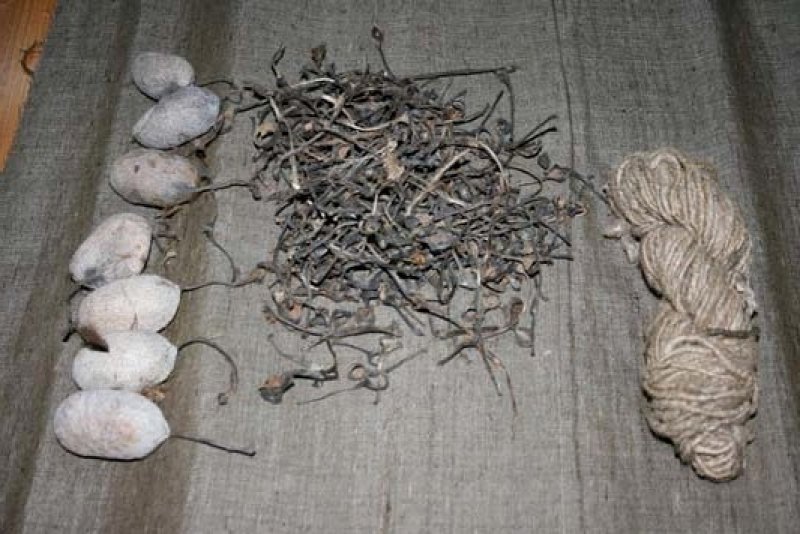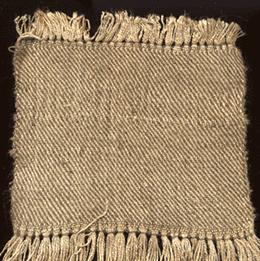
Photo above, taken by Treenway Silks' founder Karen Selk, shows Tropical tasar cocoons with peduncle still attached (L), removed peduncles (middle) and yarn spun from the peduncles (R)
This very unusual silk yarn is from the tropical tussah (tasar in India) caterpillar. This “little guy” has a cocoon spinning process unlike any other silk producing caterpillars in the world, including the temperate tussah silkworm.
When the tropical tasar caterpillar is ready to spin its cocoon, the first silk is spun back and forth to form a stem, called a peduncle. The caterpillar spends an entire day creating the peduncle and then it begins to spin the cocoon.
As nothing is left to waste in India, the village women in the tasar-rearing areas have developed a multi-step process of turning the silk peduncles into silk yarn.
Unlike the honey-colored cocoon, the stem is nearly black. The peduncle yarn is a deep gray-brown color; it is a bit uneven, similar to a hand-spun yarn. The yarn is firm. Because the ply has a heavy twist, the yarn is put up on cones. As this silk is spun from short strands of the peduncle, this plied yarn is not suitable for warps.
Karen, Treenway Silks Founder, wove a twill sample using a 30/2 muga spun silk warp and the 20/2 peduncle in the weft. It was sett and beat at 36 EPI. The hand of the finished cloth is firm, but not stiff. Karen cautions “be watchful when weaving, as the yarn wants to twist back on itself.” [Photo by Karen Selk, left]
My knitting friend Brenda thinks the Tussah Peduncle Silk would make a terrific knitted cell phone bag—the firmness of the yarn would be an asset for that project.
We've named this yarn "Kinetta" because the over-twist makes it an energetic yarn. There are approximately 900 yards on a cone. Cones vary in weight, from about 70g to 140g. As always, we charge by the gram so heavier cones will cost a bit more and lighter cones will cost a bit less.
